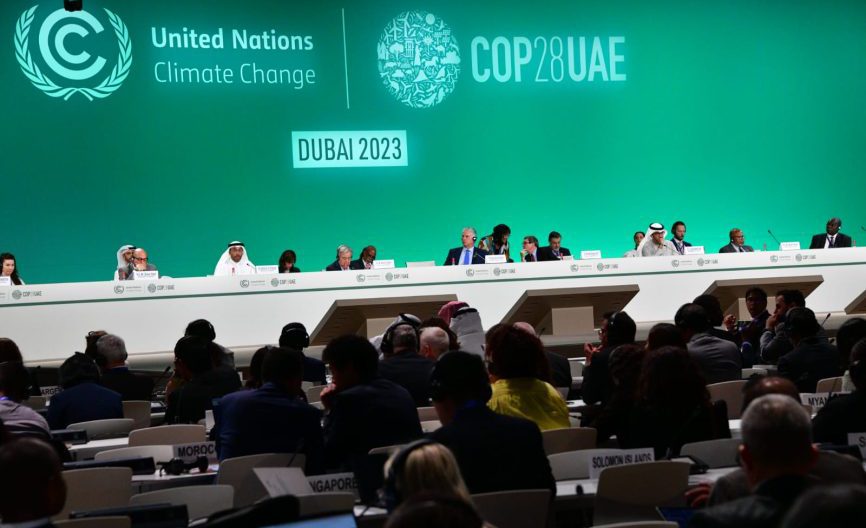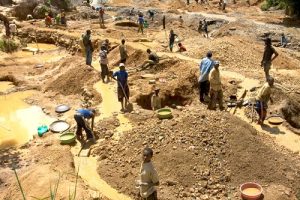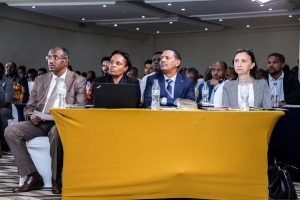
Nowadays, an urgent issue that grabs the attention of the world is climate change. It takes long-term to address the changes in temperature and weather patterns that are mostly brought about by human day-to-day activities, especially the high consumption of firewood to cook foods. Climate change is affecting many parts of the world. Apart from hampering ecosystems, it makes the livelihood of society arduous.
Through altering weather patterns, climate change brings extreme weather conditions, sometimes making them more severe and unpredictable. The increased frequency and intensity of droughts, heat waves, storms, and heavy rainfall are wreaking devastation on agriculture, infrastructure, and human life. Communities may be displaced as a result of these terrible weather occurrences and also exposed to waterborne diseases.
Additionally, climate change has adverse effects on ecosystems and biodiversity. Many species are struggling to adapt to the rapidly changing environment, leading to shifts in migration patterns, altered breeding seasons, and increased extinction rates.
According to studies on the impact of climate change on fish biodiversity, fish biodiversity is being impacted by climate change. The research suggested that safeguarding the diversity of fish in the oceans and seas requires a close look at the issue of fostering and strengthening relationships between various fish species. Fish stocks are declining globally as a result of rising water temperatures and the significant ocean acidity, it says.
Additionally, the research indicates that fish mortality will rise by 34 times over the next 70 years if current global warming conditions persist. As the waters absorb more heat and carbon dioxide during high temperatures, millions of dead fish have been discovered on the coast.
The consequences of climate change are not limited to the environment and ecosystems alone. They also have significant social and economic ramifications. Disadvantaged communities, particularly those in developing countries, bear the brunt of climate change impacts, as they often lack the resources and infrastructure to adapt and recover from its effects. Additionally, climate change exacerbates existing social inequalities, as marginalized populations are more likely to suffer disproportionately from its consequences.
The respiratory system is impacted by climate change, which also raises the risk of heart disease, lung cancer, and other linked issues. According to a Lancet journal report, more people are becoming exposed to air pollution-related cancers.
Data from the World Health Organization (WHO) also indicates that over 20,000 people die every day in the world as a result of air pollution. According to WHO data, 99% of people on the planet breathe “dirty” air. Additionally, the study shows that in over two-thirds of the world’s countries, air pollution is a contributing factor to health issues.
It is crucial to address climate change and mitigate its effects to ensure a sustainable future for the planet and its inhabitants. This requires a collective effort of all concerned parties, such as individuals, governments, businesses, and international organizations, to reduce greenhouse gas emissions, transition to renewable energy sources, protect ecosystems, and promote sustainable practices.
In order to address such climate change impacts, the 28th World Climate Change Conference (COP28), being held in Dubai, United Arab Emirates, has brought together leaders, experts, and policymakers from around the world. At the summit, high-level world officials are expected to pass viable decisions to deal with the pressing issue of climate change. Also, it has been marked by significant progress and ambitious commitments towards mitigating climate change.
Ethiopia’s practical efforts in order to prevent climate change, which have involved all parties at the national level, have led to the introduction of the Green Legacy Initiative around the globe.
The East African country has demonstrated this practical application around the globe. The participants of the COP-28 have been visiting Ethiopia’s green pavilion, according to Kebede Yimam, Ethiopia’s Forest Development Director, Genera, while he stayed for short with the Ethiopian Press Agency.
Kebede stated that Ethiopia has showcased its efforts to tackle climate change at this year’s COP 28, and we can consider it Ethiopia’s COP. In addition, he stated that Ethiopia had kept its promise under the Paris Agreement. The country has conveyed a strong message to other countries on the possibilities of preventing climate change through promoting the green legacy initiative.
In this sense, he said, the country is anticipated to get financial, technical, and other assistance for its efforts to combat climate change from developed countries and other organizations. The country will also invite other countries to expand large-scale carbon trading.
Africa emits little more than three percent of the world’s greenhouse gases. However, the continent is becoming the main vector of climate change.
The impact of climate change is causing an average annual loss of 5% in Africa’s Gross Domestic Product. In addition, 1/5th of the continent’s population faces famine as a result of natural calamities like floods and droughts. Climate change has caused a tripled increase in the number of displaced citizens in the previous three years.
Africa has only gotten 12% of the help needed to address the issue of climate change, despite the fact that 250 billion dollars are required, according to data from the COP28 summit.
The Green Legacy Initiative provides for lowering the opportunity of droughts and floods that have occurred in East African countries. Kebede stated that Ethiopia’s unique achievements in forest development will maintain regional peace and food security.
An agreement to fund measures that will mitigate climate change was made during the COP 28 meeting in Dubai.
The developed countries have pledged to provide financial support of around 83 billion dollars, up on the agreement made at the summit. The figure may rise as the summit does not reach its end. These funds will be crucial in supporting climate change mitigation projects, renewable energy development, and adapting efforts to mitigate the impacts of climate change.
With the initiation of the United Arab Emirates, Arab countries donated 30 billion USD to strengthen climate change protection efforts. The UAE, independently, has contributed 100 million USD to climate compensation and has become a pioneer in supporting the challenges posed by climate change.
Agriculture and the food system are not the only things being impacted by climate change; it has also been decided to reduce emissions from large industries and to assist countries whose food security is very vulnerable. According to COP 28 data, over 140 countries committed to donate 2.6 billion dollars to help mitigate the impact of climate change on agricultural and food security.
The conference has established a fund to respond to the impacts of climate change on food systems and health, receiving a substantial USD 568 million in support for technology transfer. Also, the European Union has expressed its commitment to contribute to the USD 100 billion climate change compensation fund, further bolstering global efforts to combat climate change.
Alongside financial commitments, COP28 has witnessed the signing of a document that has 11 articles. These documents outline strategies and initiatives to address the challenges posed by climate change. The funds gained can cover a wide range of areas, including renewable energy, technology transfer, food systems, and health. Moreover, these agreements signify a significant step forward in the fight against climate change and offer hope for a sustainable future.
Furthermore, these documents highlight the collective determination of participating nations to tackle the global climate crisis. In addition to the financial support pledged, COP28 has focused on other critical aspects of climate change mitigation.
Moreover, African countries are setting up institutions together with other international institutions to improve the carbon payment and green bond systems. Such programs would enforce the development objectives related to the mitigation of climate change, encourage sustainable investment, and receive financial support from the world’s wealthiest countries.
Methane gas emissions must be decreased, and developed countries should take proactive measures in order to reduce the release of these powerful greenhouse gases.
Sultan Al Jaber (PhD), the president of COP28, has urged countries to keep their word and continue to make progress in mitigating climate change. In reaction to the losses and harms brought on by climate change, he added, the conference seeks to find additional funding.
The way the world reacts to climate change will be greatly influenced by the decisions made at COP28. There is hope for a sustainable future because of the global promises made thus far. Together, countries can meet the challenges presented by climate change and open the door to a society that is more resilient and environmentally responsible.
It is crucial to address climate change and mitigate its effects to ensure a sustainable future for the planet and its inhabitants
BY FIKADU BELAY
THE ETHIOPIAN HERALD SUNDAY EDITION 10 DECEMBER 2023





